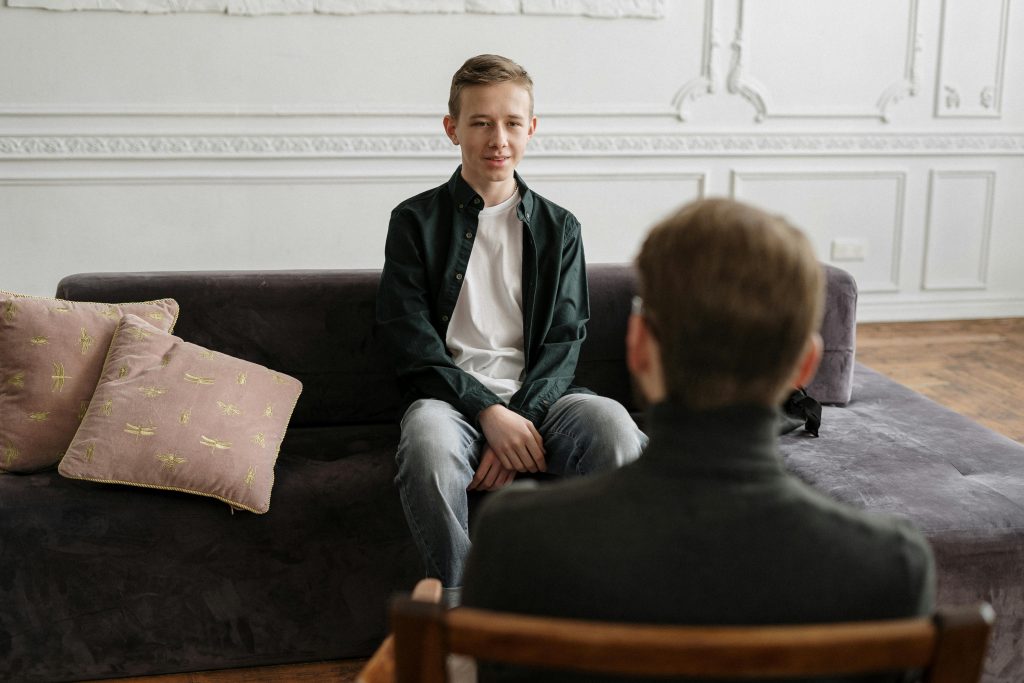Overview
One of the most fruitful and evidence-based treatment approaches of a range of mental health and behavior disorders is the behavioral therapy. It is targeted at the identification and the alteration of the malpracticed thought patterns and habits that are detrimental to normal life. Behavioral treatment provides practical solutions to reach sustainability goals in recovery and well-being, such as anxiety, depression, substance use disorders, and eating disorders.
In Solutions Healthcare, behavioral therapy methods are applied to assist the person to control their actions and thoughts and achieve meaningful and sustainable change.
What is Behavioral Therapy?
Behavioral therapy is a psychotherapy that aims at changing or altering the harmful behaviors with the use of systematic strategy and techniques. The principle under it is that behaviors are acquired – and thus, can be unacquired or substituted with healthier behaviors.
Behavioral therapy unlike other therapeutic modalities places great focus on the present and it aims at developing steps that can be used to improve the situation. This form of therapy assists them in determining triggers, appreciation of emotional reactions, and learning of new reactions to difficult situations.
Behavioral therapy is very popular in treating:
- Anxiety and depression
- Post-traumatic stress disorders (PTSD).
- Obsessive-compulsive disorder.
- Phobias
- Eating disorders
- Substance use disorders
- Problems of relationship or anger management.
The aim is to make people have coping skills that result in improved mental health, emotional control, as well as improved daily functioning.
100% Confidential Support is Available 24/7
No matter what you’re going through, you’re not alone. Our dedicated team is here to provide a safe, judgment-free space where you can talk openly and honestly. Whether you need emotional support, resources, or just someone to listen.
We’re here for you—completely confidential and always respectful of your privacy. Call us today!
Types of Behavioral Therapy
Behavioral therapy has a number of variants, and each of them is aimed at the solution of certain mental health issues. The most common and effective are below and used in the modern treatment settings.
1. Cognitive Behavioral Therapy (CBT)
Cognitive behavioral therapy (CBT) is one of the most famous and powerful treatment methods of behavior. It focuses on the correlation between thoughts, emotions and actions. CBT may help an individual to identify negative or distorted styles of thoughts and replace them with healthier and more realistic ones.
Anxiety-related cognitive behavioral therapy is an example, which assists individuals in addressing irrational anxiety and rearranges the anxious beliefs and thoughts reducing the symptoms and increasing overall mental health.
CBT is often used for:
- Anxiety disorders
- Depression
- Panic attacks
- Addiction
- Stress-related issues
2. Dialectical Behavior Therapy (DBT)
Dialectical behavior therapy (DBT) is a specialized form of CBT that has been tailored to help patients with extreme emotional variability which in the vast majority of situations is linked to borderline personality disorder or traumas. DBT is a combination of acceptance and change-focused techniques, which assist one to cope with distress, enhance relationships, and to control emotions.
The main competences in the dialectical behavioral therapy are:
- Mindfulness
- Emotional regulation
- Distress tolerance
- Interpersonal effectiveness
DBT is centered around equilibrium – helping the clients to accept their current situations and work towards improvement at the same time.
3. Exposure Therapy
Exposure therapy is also effective with persons who have phobia, anxiety disorders or PTSD. This approach is based on the gradual and safe exposure of the affected individual to a feared object, situation, or memory to become less sensitive to it as time goes by.
With exposure the people learn that the fear reaction subsides automatically, and they become able to regain their confidence and control.
4. Behavioral Activation
Behavioral activation assists people to get over depression by enhancing their involvement in positive goal-oriented activities. It is aimed at restoring order and routine stimulating rewarding behaviors, which improve mood and motivation.
Contact Solutions Healthcare
Battling with Drug and Alcohol Addition? Remember, you are not alone and we are here to help you!
Some Techniques Used in Behavioral Therapy
Behavioral therapists are using different methods to facilitate behavior change and recovery of emotions. Some of the most widely applied methods of behavioral therapy include the following:
- Systematic Desensitization: Relaxation procedures are applied but with slow exposure of anxiety provoking situations.
- Operant Conditioning: Conditioning good behavior through rewards and bad behavior through punishment.
- Modeling: Good behaviors can be obtained with the help of observation and imitation.
- Cognitive Restructuring: The process of finding and reversing dysfunctional thinking.
- Skill Training: The application of coping, communication, and problem-solving skills with the view of dealing with the challenges.
These behavioral therapy approaches are individualistic and hence all clients receive the most useful and supportive help.
How to Find a Behavioral Therapist
It is important that the correct therapist is identified in the good results brought in the behavioral therapy. Here’s how to start:
- Select eligible research practitioners: Select licensed therapists, which is a behavioral or cognitive-behavioral therapy.
- Ask about experience: Ask them to please tell you about their experience with your specific condition or goals.
- Check credentials and certifications: The evidence-based practice therapist has to be trained in CBT or DBT.
- Consider comfort and compatibility: This is among the items that you feel secure and your therapist knows you, and this is the secret of effective treatment.
- Request your medical practitioner: s/he can recommend a good behavioral therapist or treatment center.
Solutions health care has caring staff members who offer personalized behavioral therapy that is geared at helping emotional recovery and eventual development.

Care at Solutions Healthcare
At Solutions Healthcare, we have the notion that everyone should be given the opportunity to live a healthy and balanced life. Our behavior modification programs are the integration of the contemporary clinical practices with our individual approach by targeting the needs of every client.
Be it anxiety, depression, trauma or addiction, our professionals employ the most time-tested approaches of behavioral therapy, such as cognitive behavioral therapy and dialectical behavior therapy, to make you take the wheel again and take a step towards the recovery.
We develop a warm and secure atmosphere in which clients gain self-understanding, acquire healthier lifestyle and resilience to sustainable change.
Take the first step today. To find out how behavioral therapy can make a difference in your life to ensure that you lead a healthier and more balanced life, call Solutions Healthcare at (386) 866-3600.
100% Confidential Support is Available 24/7
No matter what you’re going through, you’re not alone. Our dedicated team is here to provide a safe, judgment-free space where you can talk openly and honestly. Whether you need emotional support, resources, or just someone to listen.
We’re here for you—completely confidential and always respectful of your privacy. Call us today!
FAQs
Q. What are the three types of behavioral therapy?
These are Cognitive Behavior Therapy (CBT), Dialectical Behavior Therapy (DBT) and Exposure Therapy.
Q. What are the four major types of behavior?
It has four large categories of behaviour patterns, namely passive, aggressive, assertive and passive-aggressive behaviour patterns.
Q. What are the four major types of therapy?
There are four major types of therapy, which are behavioral therapy, cognitive therapy, humanistic therapy, and psychodynamic therapy.
Q. What are the 3 C’s of behavioral therapy?
The 3 Cs Catch, Check, Change use negative thoughts to identify negative thoughts ( Catch ), review these thoughts to determine if they are accurate ( Check ) and replace them with more healthy options ( Change ).
Q. What are the three pillars in behavioral therapy?
The three pillars include awareness, acceptance, and action – assisting people in identifying the behaviors, acknowledging the responsibility, and making the positive changes.






















